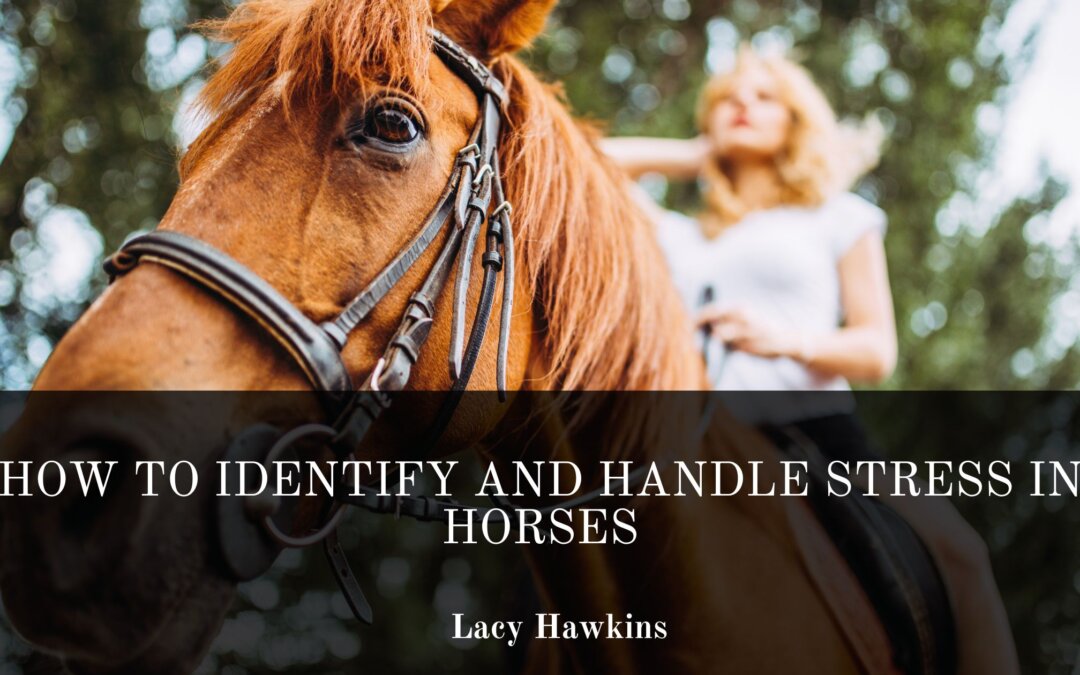Like humans, horses experience stress, and recognizing the signs early is crucial for their well-being. Whether it’s due to changes in their environment, routine, or health, horses’ stress can lead to behavioral and physical problems. Understanding how to identify and manage stress in horses can help you maintain a calm, healthy, and happy equine companion.
1. Signs of Stress in Horses
Horses express stress in various ways; the symptoms can be subtle or overt. Recognizing the signs of anxiety is the first step in addressing the issue. Some of the most common indicators include:
- Changes in Behavior: A stressed horse may display unusual or uncharacteristic behavior. This can include increased irritability, nervousness, or restlessness. They might become more challenging to handle, resist training, or shy away from things they usually wouldn’t be bothered by.
- Appetite Changes: If your horse suddenly starts eating less or stops eating altogether, it could be a sign of stress. Conversely, stress can sometimes cause a horse to eat more than usual, particularly if they’re dealing with boredom or anxiety.
- Weight Loss: Unexplained weight loss can be another indicator of stress, especially when combined with a lack of appetite or excessive nervous energy.
- Pawing or Pacing: These repetitive behaviors, such as pacing in their stall or pawing the ground, often indicate a horse is feeling anxious or overwhelmed.
- Sweating Without Exercise: If your horse is sweating excessively, even when it hasn’t been working, it could be a sign that it is stressed or anxious.
- Digestive Issues: Stress can lead to colic, diarrhea, or other digestive problems in horses. A horse experiencing gut discomfort or bloating may also develop ulcers due to prolonged stress.
- Teeth Grinding or Lip Curling (Flehmen response): Under stress, horses may grind their teeth or curl their upper lip, indicating discomfort or anxiety.
2. Common Causes of Stress in Horses
- Changes in Routine or Environment: Horses are creatures of habit and often feel stressed by changes, such as moving to a new stable, altering their feeding schedule, or changing their herd mates.
- Separation Anxiety: Horses form strong bonds with their companions, and separating them from their stablemates can cause distress.
- Overworking: Excessive training or strenuous work without enough rest can lead to physical and mental burnout, increasing stress levels.
- Health Issues: Pain or discomfort from injury, illness, or poor saddle fit can cause stress. It’s important to rule out underlying medical problems if your horse is showing signs of anxiety.
- Sensory Overload: Horses are sensitive animals, and loud noises, crowded environments, or unfamiliar stimuli can overwhelm them.
3. How to Handle Stress in Horses
Once you’ve identified the signs and causes of stress, there are several strategies you can use to help your horse feel more relaxed.
- Establish a Consistent Routine: Horses thrive on routine. Keeping feeding, turnout, and exercise schedules as consistent as possible helps reduce anxiety and provides security.
- Provide Ample Turnout: Horses are naturally active and social animals. Ensuring your horse has plenty of time to graze, roam, and socialize with other horses can help reduce stress.
- Create a Calm Environment: Minimize loud noises and sudden changes in your horse’s environment. If your horse is in a busy barn, consider moving them to a quieter part of the facility to reduce sensory overload.
- Use Natural Stress-Relief Aids: Some horses benefit from natural remedies like herbal supplements (such as valerian root or chamomile), or essential oils designed to promote relaxation. Always consult with your veterinarian before introducing new supplements.
- Address Training Issues Gradually: If your horse is stressed due to training, step back and slow down. Gradual desensitization and positive reinforcement can help your horse feel more comfortable with challenging tasks.
- Work with a Veterinarian or Equine Behaviorist: If your horse’s stress is chronic or severe, working with a professional can help identify deeper issues. A veterinarian can check for physical health problems, while a behaviorist can help modify stress-related behaviors.
Conclusion
Recognizing and addressing the signs of stress promptly is key to maintaining your horse’s mental and physical health. By creating a calm, consistent environment and giving your horse the tools to manage stress, you can help them lead a happier, healthier life.
